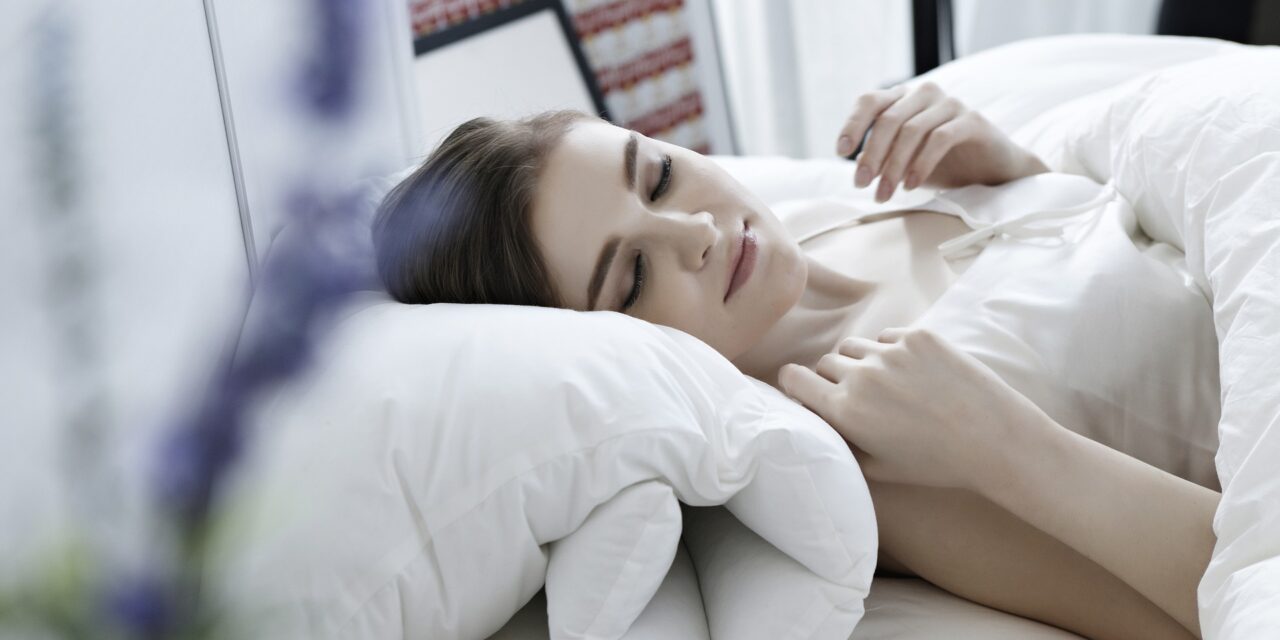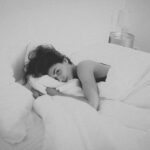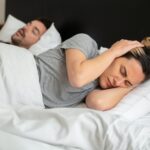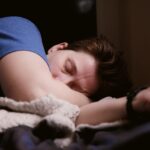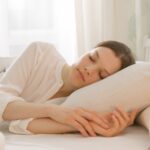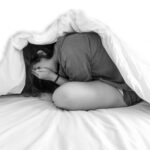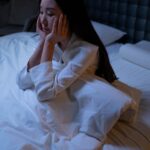Many people believe that drinking alcohol will help them fall asleep, but in reality, alcohol can have a negative impact on not only the quality of your sleep, but it can also make it difficult to stay asleep for extended periods of time. Several independent sleep studies found that, for a short period of time, alcohol appeared to help healthy people fall asleep more quickly and deeply. However, it was also discovered that alcohol has a negative effect on REM (rapid eye movement) sleep, which may result in poorer quality sleep over the long term if consumed in large quantities.
rapid movement of the eyes (REM) Sleep is one of four stages of sleep that your brain goes through while you sleep. It is normal for this stage of the sleep cycle to occur approximately 90 minutes after a person first falls asleep, according to the American Sleep Association. Muscle relaxation and eye movement are observed during this period, as well as faster breathing and increased brain activity.
Other activities such as learning and memory require REM sleep in order to be successful. Interruptions to rapid eye movement (REM) sleep can occasionally result in problems.
What to expect from our article
Why do we need REM sleep?
Even though all sleep is beneficial, REM (rapid eye movement) sleep, in particular, is essential for healthy brain development as well as for dreaming, memory consolidation, and emotional processing.
Dreaming
The majority of your dreams occur during REM sleep. However, REM is not the only stage of sleep during which dreams can occur in fact, this is a common misconception about sleep. Having said that, the dreams you have while in REM sleep are typically more vivid than those you have while not in REM sleep.
Processing of Emotions
REM sleep is a period of time during which your brain is actively processing emotional information. Dreams, which are more vivid during REM sleep, maybe involved during this time to assist us in processing our emotions. Your amygdala, which is the part of your brain responsible for processing emotions, becomes active during REM sleep as well.
Memory Consolidation
REM sleep is the stage of sleep during which our brain processes all of the new skills we have learned the previous day. During this stage, our brain decides which of the new skills should be transferred to our long-term memory and which skills should be deleted.
Drinking alcohol can have a negative impact on all of these important functions, causing you to be sleep deprived as well as forgetful, miserable, and short-tempered.
Alcohol and sleep apnea
Researcher Irshaad Ebrahim, a medical director at The London Sleep Center, explains that the consumption of alcoholic beverages can also result in other problems that can impair the quality of your sleep, such as sleep apnea. Sleep apnea is a sleep disorder that has the potential to be dangerous. Sleep apnea is defined as repeated pauses in breathing that occur throughout the night. If you snore loudly or wake up feeling tired and fatigued even after a full night’s sleep, you may be suffering from sleep apnea.
Common types of sleep apnea
- Obstructive sleep apnea is the more prevalent type of sleep apnea, which happens when the muscles in the throat relax during sleep.
- Central sleep apnea is a condition in which your brain fails to deliver correct signals to the muscles that control your breathing while you sleep.
- Complex sleep apnea syndrome, also known as treatment-emergent central sleep apnea, is a condition in which a person has both obstructive sleep apnea and central sleep apnea at the same time.
It can be difficult to tell the difference between obstructive and central sleep apnea because the signs and symptoms of both types are similar, making it difficult to determine which type you are suffering from. If you have any reason to believe you may be suffering from sleep apnea, you should see your doctor. It is possible that treating your symptoms will help to alleviate your discomfort while also improving the quality of your sleep.
Symptoms of sleep apnea
The following are the most prevalent signs and symptoms of both obstructive and central sleep apneas:
- Loud snoring
- Stopping breathing while sleeping
- Gasping for air during sleep.
- Having a dry mouth/tongue when you first wake up
- Headache in the morning
- Having trouble falling asleep (insomnia)
- Excessive drowsiness during the day (hypersomnia)
- Having trouble staying awake and paying attention
- Becoming irritable and short-tempered
How to improve sleep without alcohol?
Having difficulty falling asleep or remaining asleep is a fairly common occurrence. It is estimated that approximately 40 percent of the population will suffer from insomnia at some point in their lives, with those who consume alcoholic beverages accounting for a whopping 72 percent of the population. A number of measures can be taken in order to improve the quality of the sleep you are getting, and one of these is to refrain from or limit your consumption of alcoholic beverages.
When it comes to getting ready for bed, it is critical to take some time to relax. There are numerous ways to relax, including the following:
- Wake up and go to bed at the same time every single day.
- Your bedroom should be a haven of silence and darkness.
- Caffeine and other stimulants should be avoided, especially at night.
- A warm bath (not hot) will assist your body in reaching the temperature that is most conducive to rest.
- Organise your thoughts and clear your mind of any distractions by writing in a journal.
- Relaxation exercises, such as light yoga stretches, can help to relax the muscles. Do not engage in strenuous physical activity as this will have the opposite effect.
- relaxing music, and sound effects to help calm the mind
- Reading a book can help to relax the mind by diverting attention away from things that might be bothering you.
- Avoid using smartphones, tablets, or other electronic devices for an hour or so before going to bed. The light emitted by these devices may have a negative impact on your sleep quality and quantity.
When to consult a doctor
Contact your doctor if you are having trouble sleeping and want to learn how to improve the overall quality of your sleep. A doctor will be able to rule out any other possible causes or underlying sleep disorders such as sleep apnea and will be able to make recommendations on how to sleep better at night if necessary. A doctor will attempt to determine what is causing your sleep problems in order to provide you with the most appropriate treatment.
What treatment should I expect?
Sleeping pills are rarely prescribed by the GP (general practitioner) to treat insomnia. It has been found that if you take sleeping pills regularly, you may experience some serious side effects or develop a dependency on them. As a rule, sleeping pills are only prescribed for a short period of time, usually a few days or a few weeks at the most, and they are only likely to be prescribed if your sleep issue is severe or if other treatment options have been unsuccessful.
An alternative to sleeping pills is Cognitive behavioural therapy (CBT) which may be recommended to you in some situations. This can assist you in altering the thoughts and behaviours that are preventing you from falling asleep at night time.
If you are experiencing symptoms of a sleep disorder, such as sleep apnoea, you may be referred to a sleep clinic for further assessment and treatment.

